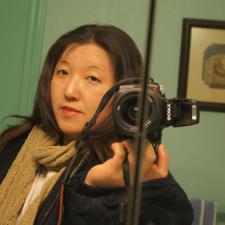1,755 Answered Questions for the topic grammar
04/21/19
two subjects in 당신은 이름이 뭐예요?
I have just studied Korean for a short time. I am having problem with the sentence below. 당신은 이름이 뭐예요? = What is your name? My friend told me that there are two subjects in that sentence (당신 marked...
more
04/21/19
What's the grammar of "with such transitions governed"?
It's not uncommon to use *with* to introduce a clause like this: > A particle's energy state jumps about randomly, with such transitions governed by the temperature of the system. What's the...
more
04/21/19
What's the difference between なぜ、どうして and なんで when meaning 'why'?
I've been meaning to ask this for a while.
What is the difference between these 3 words. I was taught they all mean "why", but obviously, being different words they convey different nuance and...
more
04/21/19
What is the meaning of りゃ in this phrase?
I came across this phrase while reading an interview.
> そういう時はなんて答え**りゃ**いいんだ。
I think it means "At a time like that, such a reply/response is good."
But I don't understand the usage of りゃ. I...
more
What is the subject when time passes in a narrative (eg 1ヶ月を経る)?
(This might be a quick easy question but sometimes the answers to these are unexpected.)
What is the subject in the following sentences? I've given my best efforts for the examples 1-4 below. (I...
more
04/21/19
What form is あり?
On the road outside my daughter's nursery is painted 保育園アリ. I guess this is a form of ある, but what's it called, and why is あり used not ある?
Grammar Punctuation
04/19/19
Is any punctuation required here?
Blessed are we to join today in the celebration of a new life that is on the way.
Grammar Chinese
04/19/19
Is verb+点儿 an adverb?
My friend asked me about the following sentence that appears in NPCR 1, Lesson 12:
你要多穿点儿衣服.
I understand that it means "You should wear some more clothes." However, she is confused about the...
more
Grammar Japanese
04/18/19
Difference between てもいい and ていい?
> 寝ていい?
I've learned that to ask permission for doing something, you needed to use ~てもいい but the more I read japanese, the more I come across ~ていい. What is the difference ? Is the latter a...
more
Grammar Chinese
04/18/19
How to decide which part is a subject and which a predicate?
I just read the following sentence:
> 我这两天住的很愉快。
The meaning is pretty clear. Since this is a letter from a guest to a host in AirBnB, the meaning should be something like "It was so good to...
more
04/18/19
The nuance of ことなく compared with ないで?
What nuance does "ことなく" have?
If we compare the following two sentences:
(For example, at a footrace:)
最後まで、あきらめないで走ります!
vs
最後まで、あきらめることなく、走ります!
Is ことなく stronger than simply saying ないで? Does...
more
Grammar Chinese
04/18/19
How to say "Say hi to someone" as a description?
So, I've been trying to figure out what is the best way to describe the sentence "I went to the store to say hi to the owner". (Imagine in this context I haven't seen him for a certain amount of...
more
04/18/19
How can I fix my participial phrase?
I have to create a "supersentence" which consists of an independent clause, adverb clause, noun clause, gerund phrase, prepositional phrase, infinitive phrase, and participial phrase. I have all of...
more
04/17/19
The という in things like 〜ということ・〜というの・〜という感じ・〜というわけ etc?
I have been trying for ages to understand the reason という is used so frequently. In other words, what does it add to the sentence and what connotations does it have in Japanese? I understand the...
more
Grammar Chinese
04/17/19
What's the difference between 打开 and 开门?
How can I tell when to use `打开` and when to use `开门` in Chinese? For example, in the following sentences:
* 这扇门打开了
* 这个书店开门了
Why does the first sentence use `打开` and the latter use `开门`?
Also,...
more
04/16/19
When to use single (ㅅ) or double (ㅆ) consonants?
Is there a rule generally to help remember when we would write double consonants like ㅆ, ㄲ, ㄸ, ㅃ, ㅉ instead of single consonants like ㅅ? For example, remembering to write 땀 for sweat, and not 담. Is...
more
04/16/19
Shouldn't this phrase using だけのこと mean "just for that"?
In a grammar textbook I have, there is this phrase:
> 幸{さいわ}い日本{にほん}で日本語{にほんご}を勉強{べんきょう}して、かなり話{はな}せるようになりました。日本{にほん}に行{い}っただけのことはありました。
The translation given is:
> Fortunately, I studied...
more
Grammar Chinese
04/15/19
吃午饭了, should 了 be right after 吃?
I saw this sentence from a text book:
你吃午饭了没有?
Have you had lunch yet?
Does the 了 have to be right after the verb 吃 though?
你吃了午饭没有?
Have you had lunch yet?
I learned that 了 with...
more
Grammar Chinese
04/15/19
Meaning of 之 in this sentence?
Why is 之 used in this sentence?
忍耐是幸福之门的一把钥匙.
Cant it just as easily be substituted with 的? Please help me understand. Thanks.
Grammar Chinese
04/15/19
Difference between 几岁了 and 多大了?
I googled a bit on it and found different explanations. Some says it just depends on the region and dialect. But my text book explains that as a rule of thumb 几岁了 should be used for kids before 10...
more
Grammar Chinese
04/15/19
Is '去+verb' similar to 'to infinitives' in English?
I am a collector. I collect sentences which I find interesting or exemplary for certain syntactical structures. I just stumbled over another example of this structure, so I thought I would ask the...
more
Grammar Chinese
04/15/19
Weird usage of 不?
In this sentence the 不 in the last few phrases seems to mean the opposite. For example 放不下 seems to mean the same as 放下 in this context. Is the Bu just decorative or is there a special structure...
more
Grammar Chinese
04/15/19
Future perfect tense sentences in Chinese (eg. "Next month I will have been married 3 years"?
I have a few English sentences I'm struggling to translate to Chinese, although I'm HSK5 level. Here they are, along with my attempted translations (please be strict and critical cos I want to know...
more
Grammar Chinese
04/15/19
Generally speaking, is it not possible to indicate 'was' or 'were' on '是‘?
I was listening to this 听力练习 on this beautiful day, staring at the little mountain outside my window.
莉莉:英子,你不是在一家公司工作吗?
I, swift as an eagle, think ‘Yingzi, aren't you working for a...
more
Grammar Chinese
04/15/19
What is the function of 了 in the sentence "她会杀了你的"?
What is the function of 了 in the following sentence? Does it imply a sequence of actions?
> 她会杀了你的。"She will kill you."
Still looking for help? Get the right answer, fast.
Ask a question for free
Get a free answer to a quick problem.
Most questions answered within 4 hours.
OR
Find an Online Tutor Now
Choose an expert and meet online. No packages or subscriptions, pay only for the time you need.






















